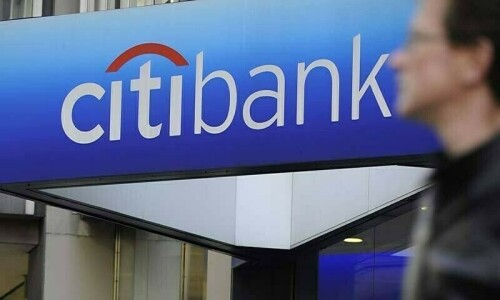BRUSSELS, Nov 13: Germany played down losses at another of its banks on Tuesday as European Union finance ministers assessed risks to the economy on multiple fronts, from the global credit crunch to surges in the euro and oil prices.
The day saw little progress, with the 27 ministers failing again to reach agreement on a long-running dispute over reduced rates of value-added tax, the EU’s main sales tax.
Reduced rates of VAT in the Czech Republic, Cyprus, Malta, Poland and Slovenia expire at the end of this year unless there is a deal. The ministers were unable to strike a deal to avoid a big increase in tax on books, meals and home repairs in five EU countries which now apply reduced VAT rates on those items.They also turned deaf ears to a German plea to fund an ambitious EU satellite navigation system known as Galileo from money earmarked for the European space station.
Berlin is trying to avoid plugging a 2.4 billion euro shortfall in funding the European challenger to the US Global Positioning System from the EU’s common budget after the private sector failed to come up with the money.
But EU officials said there was still hope of a deal with Berlin to rescue the prestige project after Chancellor Angela Merkel and French President Nicolas Sarkozy pledged on Monday to seek agreement by the end of this month.
The twin oil and credit threats to Europe’s buoyant economy hit home when Air France announced it was adding a new surcharge of up to 10 euros per flight to cover fuel costs, and more bank woes surfaced in Germany, this time at state bank WestLB.
German Deputy Finance Minister Thomas Mirow put a brave face on an overnight announcement that WestLB expected to make a loss because of troubles in financial markets where a crisis in US sub-prime mortgage debt has triggered a global credit crunch.
Mirow said the German government was well aware of the state of the balance sheets of German banks.—Reuters














































Dear visitor, the comments section is undergoing an overhaul and will return soon.